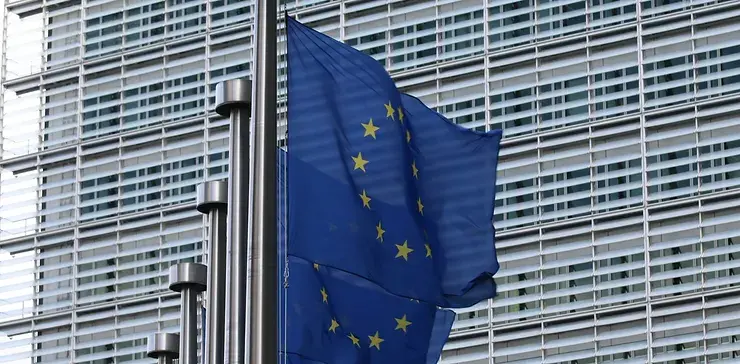EC adopts reporting standards at CSRD
- Mr. Timo Wisse

- Aug 4, 2023
- 3 min read
On July 31, 2023, the European Commission adopted the European Sustainability Reporting Standards (ESRS), the reporting standards associated with the Corporate Sustainability Reporting Directive (CSRD). The ESRS specify what sustainability information companies must report on under the CSRD and include environmental, social and governance standards. The CSRD requires large corporations and publicly traded SMEs to publish sustainability information about their impact on people and the environment and the risks and opportunities arising from sustainability issues' effects on the company. This sustainability reporting helps investors, civil society organisations, consumers and other stakeholders assess and compare companies' sustainability performance.

Commenting on the adoption of the ESRS, Mairead McGuinness, European Commissioner (Financial Services and Stability), said, "The standards we have adopted today are ambitious and are an important tool in support of the EU's sustainable finance agenda. They strike the right balance between limiting the burden on reporting companies while at the same time making companies' efforts to comply with the Green Deal agenda transparent and thereby giving them access to sustainable finance."
The first set of ESRS was issued by EFRAG as advice to the European Commission in November 2022. On June 9, 2023, the first set of ESRS was published by the European Commission as a draft for consultation. This version contained significant differences from the variant prepared by EFRAG. The final version of the ESRS remains largely unchanged from the draft. The following highlights the main changes from the June 9, 2023 draft:
Materiality Assessment: Companies will only be required to report on General Disclosures. All other standards with disclosure requirements and data points must be subject to the double materiality assessment. The materiality assessment can then be used to determine which topics should be considered material and reported on. The process of identifying and assessing material topics will be subject to external assurance. The European Commission has asked EFRAG to draw up additional guidelines with a view to, among other things, carrying out the double materiality assessment. EFRAG has indicated that it will publish a first set of EFRAG Implementation Guidance and FAQ in view of materiality assessment and value chain by August 16, 2023. The ESRS further provides that:
If a company concludes that ESRS E1 "Climate Change" is not considered a material issue, it is required that the company provide a detailed explanation of its materiality assessment findings concerning the "Climate Change" issue.
When a company determines that a data point arising from EU legislation (such as SFDR, Benchmark Regulation or Pillar 3) is not material, it must explicitly state it as "not material. In addition, companies must provide a public table of all such data points, indicating where they can be found in sustainability reporting or whether they have been designated as not material. These provisions are intended to meet the information needs of financial market participants, for example, who wish to comply with the disclosure requirements imposed by the SFDR on investee companies. In the Q&A released alongside the ESRS, the European Commission states that financial market participants may assume that any data point designated as immaterial by a company they invest in does not contribute to the corresponding indicator from the principle adverse impacts statement in the SFDR.
To ensure alignment between the ESRS and the International Sustainability Standards Board (ISSB) standards, the European Commission has adjusted the definition of financial materiality in the ESRS. The first two ISSB standards, published in June 2023, and the ESRS were developed in parallel, and an attempt was made to achieve a very high level of alignment between the ESRS and the ISSB standards. The alignment between the ESRS and the two ISSB standards is aimed at avoiding double reporting by companies that are required to report under the ESRS and want to comply with the ISSB standards. This alignment also contributes to developing a coherent global sustainability framework, making it easier for stakeholders to compare sustainability information worldwide.
The delegated act adopted by the Commission will be formally submitted to the European Parliament and the Council for scrutiny in the second half of August 2023. The scrutiny period will last two months and may be extended for another two months. The European Parliament or the Council can reject the delegated act but cannot amend it.
The ESRS will apply from January 1, 2024, to companies already subject to NFRD, the predecessor of the CSRD, and will take effect in phases. The Commission is expected to adopt additional standards in the future. For example, the CSRD requires adopting sector-specific standards, standards for listed SMEs and non-EU companies by June 2024.




Comments